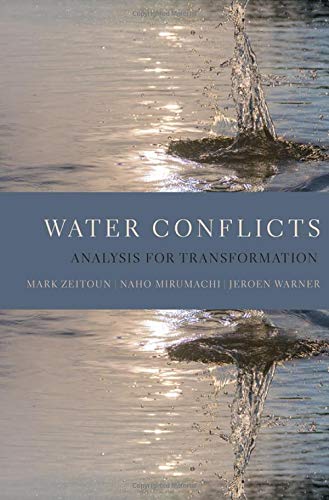
Two weeks to go until World Water Day 2021! Our first spotlight on water research feature is the book, Water conflicts: Analysis for Transformation (2020) by King’s Water hub lead Dr Naho Mirumachi. This new work highlights how transboundary water conflicts in the world create inequalities and existential threats to both communities and freshwater ecosystems. Naho who is Reader in Environmental Politics at the Geography department, spearheaded the development of “transformative analysis” framework with her London Water Research Group colleagues to better understand water conflicts. The authors explain that transformative analysis is meant to assess how transboundary water conflicts negatively affect communities and how to address the problem. It is not a framework that focuses on the benefits or advantages that result from transboundary water intervention, which may not benefit all participants. Zeitoun, Mirumachi, and Warner (2020) argues that “… there are better alternatives to be sought to existing ways of establishing and maintaining transboundary water arrangements. The first step to qualitatively change the harm experienced … is to challenge what is politically acceptable in the way we allocate, share, and develop water resources” (p.3).
Dr. Mirumachi has served as the lead author on freshwater policy for the 2019 UN Environment GEO-6 report. She welcomes PhD students who are interested in researching transboundary water conflict and cooperation, water governance, and low carbon development. In September 2021, she will co-direct the newly launched MA Geopolitics, Resources and Territory programme, which will feature plenty of lectures, seminars and discussions around the politics of water and associated natural resources.
